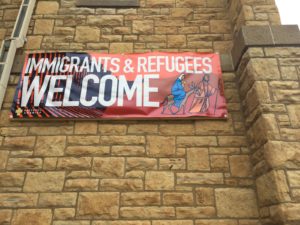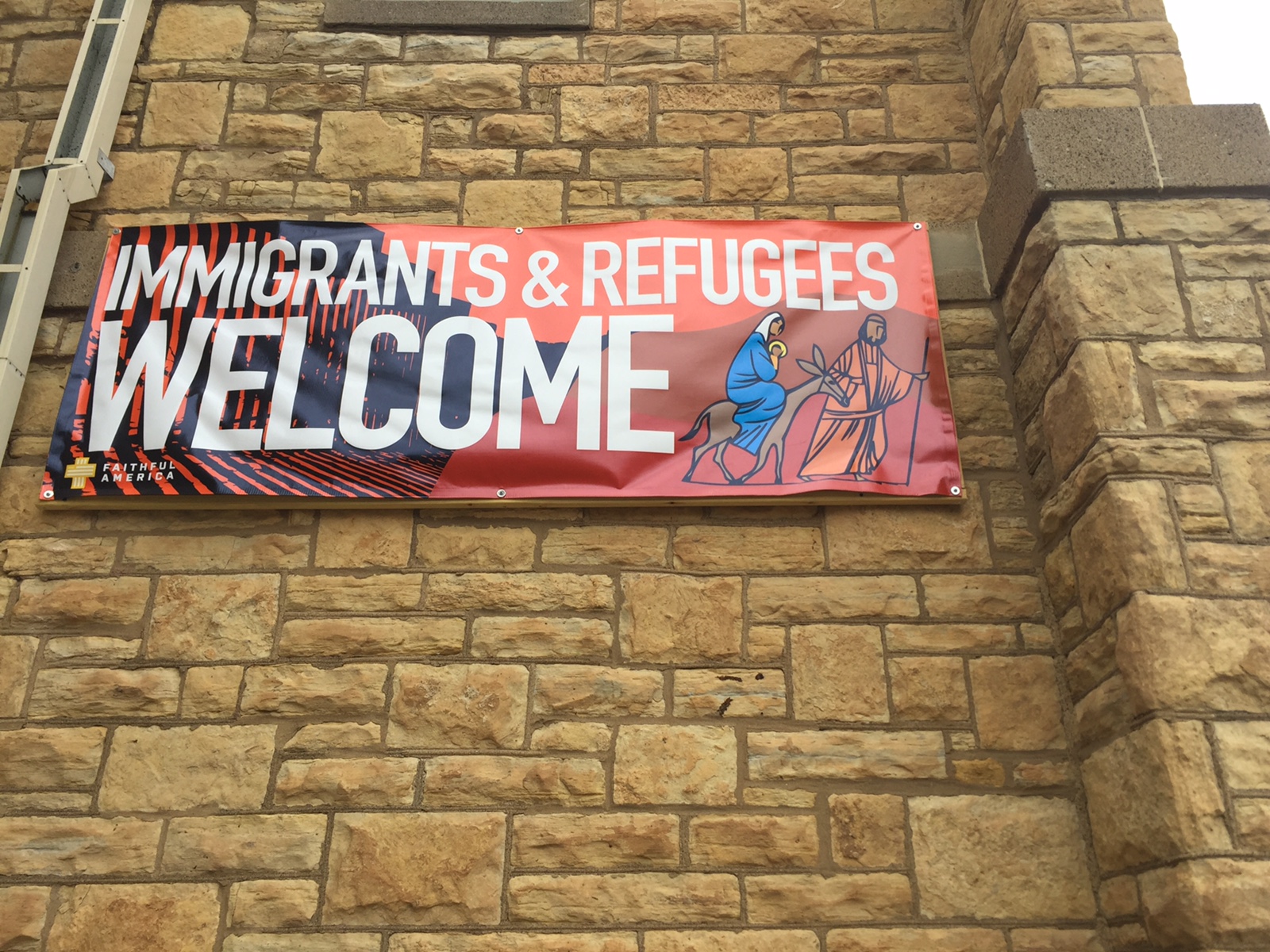
About 25 Twin Cities congregations are joining a movement to offer sanctuary to immigrants who fear deportation.
Pastor James Erlandson of the Lutheran Church of the Redeemer in St. Paul described the sanctuary movement as a way to give a public voice and a safe place to live for immigrants who are seeking sanctuary.
“Since December, there are congregations in the United States that have been organizing to prepare ourselves to take in undocumented immigrants if they’re afraid or in danger of being deported,” Erlandson said. “There are about 15 churches that are sanctuary congregations and 9 that are supporting (in Minnesota), so they’ll offer support to the congregations that have the facilities to house people.”
A panel of religious leaders involved in the sanctuary movement came together March 9 at Luther Seminary in St. Paul to talk about what it means to be a sanctuary church and why they are involved.
Rabbi Latz of Shir Tikvah is the Senior Rabbi of the first synagogue in the upper Midwest to declare itself a sanctuary congregation. He said standing up for people who are treated unfairly reflects both faith-based and personal values of Jewish tradition.
“When we have people in positions of power and authority who threaten human beings with injustice and indignity, it means that our response is to respond like Abraham and to challenge that,” Latz said. “This is not only theological, it’s personal for us.”
Catalina Morales de Sanchez, a representative from ISAIAH, a faith-based organization in the Twin Cities, spoke on the panel about the realities of the sanctuary movement.
“Right now there’s a memo that immigration signed, and it’s still valid, that they’re not going to go into what they’re calling ‘sensitive locations,’” Morales de Sanchez said. “All the congregations that have declared sanctuary know that that memo could be taken away any day. I think a piece of paper is not going to specifically make sure that a person is not taken from a congregation.”
Virgil Wiebe, St. Thomas’ Legal Services Clinic director explained the Sensitive Locations memo that Sanchez referred to suggests that officials do not raid places like hospitals, churches, and schools. However, he said memos are meant to give guidance to authorities’ discretion of the law, so the Sensitive Locations memo does not legally stop them from going into those locations if they have the right clearances.
Wiebe believes the societal pushback may offer some protection to those involved.
“There’s sort of a societal negotiation going on,” Wiebe said. “If there is a concerted effort to say to the federal government, ‘Your policies and priorities of enforcing immigration law are wrong,’ either legally or morally, that push and pull in the system happens.”
Rebecca Scholtz, a new faculty fellow at St. Thomas’ Legal Services Clinic, specializes in immigration law. With a history in working with unaccompanied immigrant children, Scholtz said the work is important to her because they are promoting fairness and justice.
“The youth I’ve worked with are really amazing,” Scholtz said. “Immigrants provide so many benefits to our communities.”
Scholtz is now a staff attorney with Catholic Immigration Network Inc. on the Defending Vulnerable Populations Project helping better equip attorneys and representatives to defend immigration cases.
“By increasing access to competent, affordable representation, the project’s initiatives will focus on protecting the most vulnerable immigrants – those at immediate risk of deportation,” the CLINIC website stated. “The project’s primary objective is to increase the number of fully accredited representatives and attorneys who are qualified to represent immigrants.”
Wiebe believes that the churches can make an impact in current social issues.
“They’re very much a part of the conversation,” Wiebe said. “Churches are not apartment buildings, they’re not hotels—they’re not going to be able to hold hundreds and hundreds of people, but those that take that risk will be making a statement—and one that will be heard.”
Kassie Vivant can be reached at viva0001@stthomas.edu

